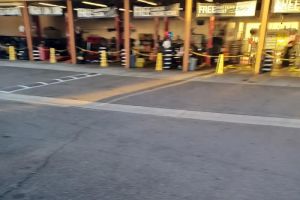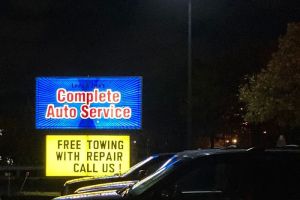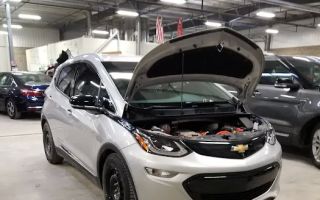Understanding What Happens When Your Car Dies While Driving
We've all been there: cruising along the road, music playing, and then suddenly, your car starts to sputter and eventually shuts off. It's a scary moment, especially if it happens without warning, but knowing how to react can help you stay calm and avoid making the situation worse. Understanding what causes a car to die while driving and how to respond effectively can be a lifesaver.

Firestone Complete Auto Care
1933 N Placentia Ave, Fullerton, CA 92831, USA
1. Stay Calm and Assess the Situation
The first thing you need to do when your car dies is to stay calm. Panicking will only make the situation more stressful. Here are the steps to take:
- Keep a firm grip on the wheel to maintain control of the car.
- Check your surroundings to ensure you're not blocking traffic or in a dangerous spot.
- If your car is still rolling, try to coast it to a safe area, such as the shoulder of the road or a nearby parking lot.
- Turn on your hazard lights immediately to alert other drivers.
2. Try to Restart the Engine
Once you've safely moved to the side of the road, try restarting your engine. This step may sound basic, but in some cases, your car may just be experiencing a temporary issue that can be resolved with a simple restart. If the car restarts without issue, you may be able to drive to a mechanic or a safer location.

Complete Auto Service of Ann Arbor
2890 Jackson Ave, Ann Arbor, MI 48103, USA
3. Identify the Possible Causes
When your car dies, it could be due to several different issues. Some common causes include:
- Fuel problems: Your car may have run out of gas, or there may be an issue with the fuel pump or filter.
- Battery issues: If the battery is dead or malfunctioning, your car could shut off while driving.
- Ignition system failure: Problems with your ignition switch or spark plugs can cause the engine to stall.
- Alternator failure: If the alternator isn't charging the battery properly, your car may lose power and shut off.
If you're able to identify a potential cause (e.g., an empty gas tank), it could save you time and stress while troubleshooting. If you're not sure what's wrong, don't attempt to fix it yourself unless you're trained to do so. A professional mechanic can diagnose the issue more accurately.
4. Call for Roadside Assistance
If your car doesn't restart or if you're unable to determine the cause, it's time to call for roadside assistance. Whether you're dealing with a dead battery, mechanical failure, or another issue, a roadside assistance service will send a tow truck or a mechanic to your location. Many auto insurance policies or third-party services offer this type of coverage, so it's always a good idea to have it in place.
5. Plan for a Tow
If the problem is severe and can't be fixed on-site, you'll need to have your car towed to a repair shop. While waiting for the tow truck, ensure that your vehicle is in a safe location. Stay inside your car with the doors locked if you're on a busy road, or wait at a safe distance if you're in a secluded area.
6. Take Preventative Measures in the Future
Experiencing a car breakdown can be frustrating, but it's a reminder of the importance of regular vehicle maintenance. To avoid similar situations in the future, consider taking these precautions:
- Regularly check your car's oil and fluids: Keep an eye on your oil, transmission fluid, and coolant levels to ensure your car's engine is running smoothly.
- Test your battery: Have your battery tested regularly to prevent unexpected power issues.
- Replace worn-out belts and hoses: These parts are essential for your car’s performance and can deteriorate over time.
- Check your tires: Ensure your tires are in good condition and properly inflated to avoid accidents or further mechanical damage.
What to Do if Your Car Dies While Driving: A Final Recap
When your car dies while driving, it’s important to stay calm and act quickly. First, make sure to get your vehicle to a safe spot, check for possible issues, and attempt to restart the engine. If that doesn’t work, it’s time to call for roadside assistance or plan for a tow. By taking these steps, you’ll minimize the stress and get back on the road as quickly as possible.
If you’re looking for more tips on handling car emergencies or need roadside assistance, be sure to check out our recommended services at Rescue & Towing. With the right support, you can handle any car breakdown with confidence.




























